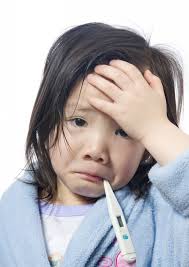记忆方法
将“feverish”分解为“fever”加上“ish”。想象一个人发烧到几乎变成“fever”(发烧),因此状态变得极度热烈或紧张,用“ish”来形容这种状态,从而记住“feverish”表示发热的或极度紧张的情绪。
以上内容由AI生成, 仅供参考和借鉴
英语词源
- feverish (adj.)
- late 14c., "causing fever;" 1630s, "excited, unduly ardent;" 1640s, "having symptoms of fever, having a slight fever," from fever + -ish. Earlier in same sense was feverous (late 14c.). Old English had feferig, feferseoc. Related: Feverishly; feverishness.
权威例句
- 1. He will be attending next week's American Grammy Awards in feverish anticipation.
- 他将带着紧张兴奋的期待出席下周的美国格莱美奖颁奖。
- 2. A feverish child refuses to eat and asks only for cold drinks.
- 发烧的孩子不愿吃东西,只会要冷饮。
- 3. On the chilly seas, Keats became feverish, continually coughing up blood.
- 在寒冷彻骨的海上,基茨开始发烧,不断地咯血。
- 4. The whole place was a scene of feverish activity .
- 整个地方都是一片紧张匆忙的景象。
- 5. Her skin felt moist and feverish.
- 她的皮肤摸上去又湿又热.
